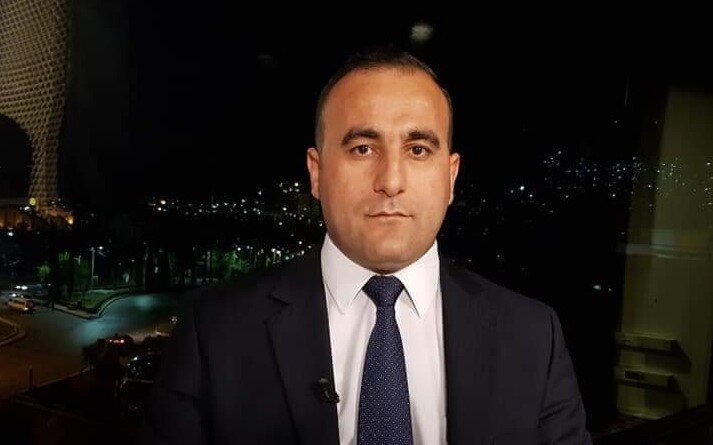Turkish-Israeli ties are strategic and deep: Syrian politician

TEHRAN - A member of the National Reconciliation Committee in Syria stresses that Turkey-Israel ties are profound and on the rise.
"The Turkish-Israeli- relations are strategic and deep-rooted, though they fluctuate according to the attitudes of the two governments, so it is generally getting stronger day by day,” Omar Rahmoun tells the Tehran Times.
On Monday, Turkish President Recep Tayyip Erdogan called his new Israeli counterpart Isaac Herzog, in a sign of a possible thaw between the two former allies after years of frosty relations.
The rare telephone talks between two leaders came after Erdogan held talks on Saturday with Palestinian Authority President Mahmoud Abbas.
While Erdogan tries to present himself as a vocal champion of the Palestinian cause during his 18-year rule, his critics say that the recent call and accentuation of boosting bilateral ties shows Erdogan’s mendacity.
“Erdogan's claims about supporting the Palestinian cause are nonsense that only lunatics or those without brains may believe him. It is very easy for Erdogan to claim, but the people in the region are not blind and the truth is visible,” Rahmoun remarks.
“Turkish-Israeli ties are not subject to the mood of their leaders. It is a well-established and strong relationship and it is in progress every day despite the rumors about some disputes,” according to the Syrian politician.
Following is the text of the interview:
Q: On Monday evening (July 12), Erdogan called Israel’s Herzog congratulating him on being sworn into his new role as president. What are the reasons for such a rare direct communication between officials of Turkey and Israel after over a decade of fraught relations?
A: The contact of the Turkish president with the Israeli president is not strange but a normal expectable measure.
It was a normal protocol that usually takes place after every similar occasion between the two sides.
Don’t forget that Turkey was the first Islamic country to recognize the Zionist regime in 1949, one year after the occupation of Palestine. In the eyes of those who know the nature of Turkish-Israeli ties, this is a normal phone call. But it is surprising for those who view Erdogan as the caliph of the Muslims.
Q: How do you evaluate the Turkish-Israeli relations under Erdogan’s presidency, especially Erdogan claims Turkey supports the Palestinian cause?
A: The Turkish-Israeli relations are strategic and deep, though they fluctuate according to the policies of the two governments, so it is generally getting stronger day by day.
Turkish-Israeli ties are not subject to the mood of their leaders. It is a well-established and strong relationship and it is in progress every day despite the rumors about some disputes.
Erdogan's claims about supporting the Palestinian cause are nonsense that only lunatics or those without brains may believe him. It is very easy for Erdogan to claim, but the people in the region are not blind and the truth is visible.
All of Turkey's relationship with Palestine and the Palestinians is to set their pace in a way that serves Israel, as will happen later with the Taliban in Afghanistan.
Q: Some reports suggest that Erdogan is trying to get close to Israel to appease U.S. President Joe Biden, who does not like the current Turkish government. What's your comment?
A: Biden's dispute with Erdogan is well known, and Biden does not like Erdogan for several reasons. The hypothesis that Erdogan is approaching the Israeli government to strengthen its ties with Biden is an acceptable reason.
Erdogan is trying to open channels with Biden without looking at the means, and Erdogan's communication with the Israeli government is not far from this goal.
Q: What is Turkey's role in establishing peace in the region from Libya to Syria and Afghanistan? How do you evaluate Turkish existence in these areas?
A: Turkey’s role in the region is the role of NATO’s regional policeman. After Turkey’s participation in destabilizing Syria, Iraq and Libya, it is now moving to Afghanistan.
The Turkish presence in Syria, Iraq and Libya is an occupation, which in our view is worse than the Israeli occupation, as Turkish presence can be a step to pave the way for the Western presence including the U.S. and Europe.
Q: Do you expect Turkey to normalize relations with Syria as Saudi Arabia and Syria have taken steps to normalize ties?
A: Turkey has offered to normalize its relations with Syria since 2016, through the Russian mediator, but Syria refused.
The matter relies on the approval of the Syrian side, not vice versa.
Turkey's interest in normalizing the relationship with Syria is greater than Syria's interest in such a move.
